#disney in they flop era
Explore tagged Tumblr posts
Text
Kids who grew up watching Moana are not even done high school why are they making a live action?? What is the "new generation" Disney is making this movie for?
#WHAT IS THE REASON!#no francise wants the rock he must need a job#disney in they flop era#moana#moana live action
17 notes
·
View notes
Text

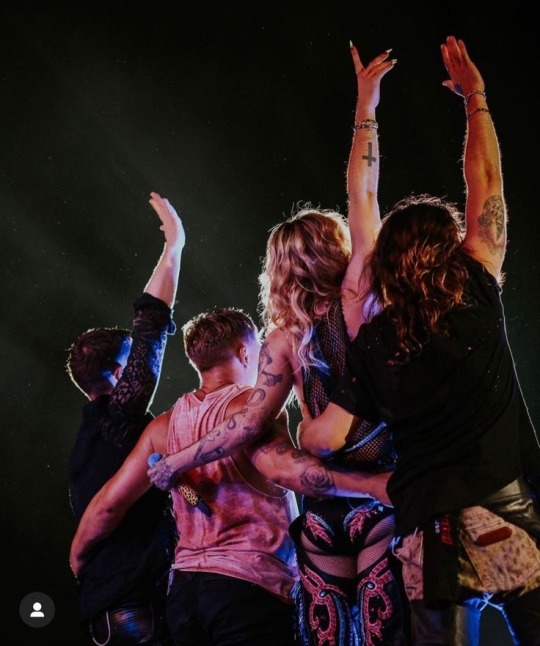

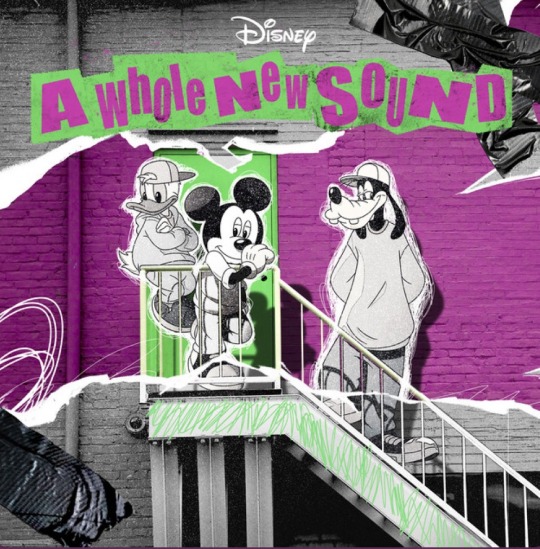
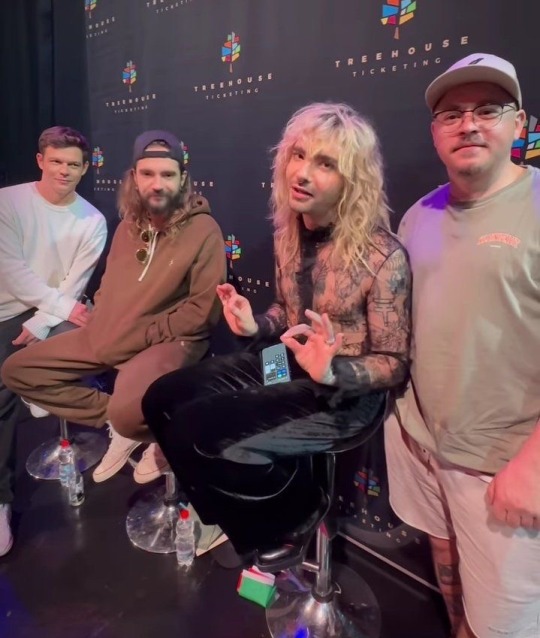
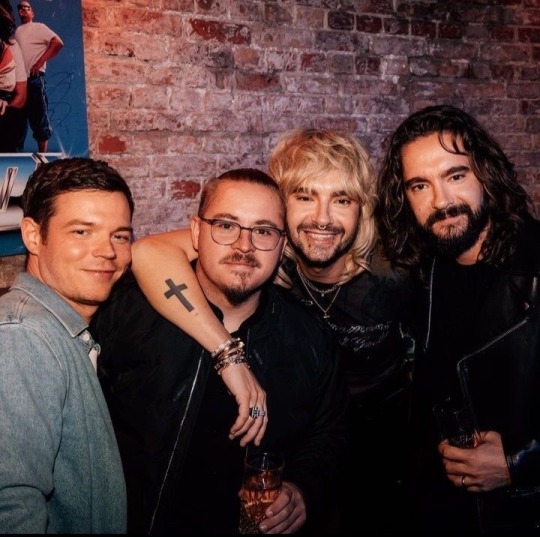

𝘛𝘩𝘪𝘴 𝘨𝘰𝘵 𝘭𝘰𝘴𝘵 𝘪𝘯 𝘮𝘺 𝘥𝘳𝘢𝘧𝘵𝘴 𝘧𝘳𝘰𝘮 𝘴𝘦𝘱𝘵𝘦𝘮𝘣𝘦𝘳 :0
#tokio hotel#new music#colours of the wind#bill kaulitz#tom kaulitz#georg listing#gustav schäfer#kaulitz#kaulitz twins#Disney x Tokio hotel#tom kaulitz x y/n#spotify#2024 era#2000s#KAULITZZZZ#kaulitz & kaulitz#i love tom kaulitz#i love tokio hotel#Pocahontas song#disney#lost in drafts#draft clearout#in my flop era#womp womp#>:3#ily tho#invader zim
76 notes
·
View notes
Text
beach o(-(
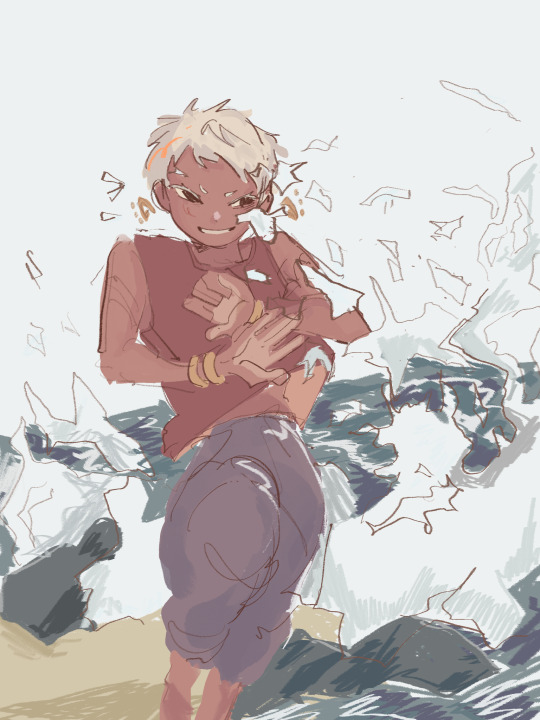
#never rlly drawn ocean before so this was kinda fun to try#rlly like thinking abt kalim at the beach bc UM and sand#love he#he is so dear#let him enjoy himself!!!!!!#sponsered by the 5 lines of dialogue he got him glorious masquerade#twisted wonderland#twst#disney twisted wonderland#kalim al asim#disney twst#twst fanart#twst kalim#scarabia#twst scarabia#i think im in my flop era again so it is time to doodle whatever whenever and however i like muahahaha >:]
461 notes
·
View notes
Text
save me lemonade mouth (2011) soundtrack, lemonade mouth (2011) soundtrack save me
#lemonade mouth#disney#disney channel#one of the few dcom musical albums with ZERO flops#please hold. currently in my lemonade mouth revival era#*success
175 notes
·
View notes
Text
I’m watching Kung Fu Panda so obviously I’m getting emotional.
Tai Lung is such a wonderfully crafted villain thats so sympathetic be even so you can’t excuse everything that he’s done.
The animation is beautiful and so subtle and detailed especially in the scene when Shifu says that he’s sorry, that whole fight scene between Tai Lung and Shifu is amazing actually.
When I was younger I never really noticed it but Tigress gives us an explanation for almost her ENTIRE CHARACTER in one sentence when she’s telling Po about the history of Tai Lung, “Shifu loved Tai Lung like he’d never loved anyone before… or since.” And it never felt that heavy to me because little 6 year old me was always just like “haha panda make silly sound and face!!” right after.
Po’s self doubt and imposter syndrome is also something that’s more obvious to me now that I’m older and also so much more relatable. There’s something about him asking Shifu “how? How?” Over and over only being met with Shifu’s silence until finally he admits he doesn’t know how to turn him into the dragon warrior.
And then moments later Tigress flinging herself off the Jade Palace is just plain awesome.
Also, I’m a huge sucker for fight choreography and all three of the Kung Fu Panda movies have such awesome fight scenes. Also each character has a distinct way of fighting based on their size and species which is just such cool attention to detail.
I know everyone and their mother had talked about or at least knows how great these movies are but I need to put my two cents into everything so here it is.
#dreamworks#dreamworks animation#Kieran’s Two Cents 🤞#<- new tag bc maybe I’ll be talking about stuff like this more#because it makes me happy#kung fu panda#tai lung#tigress#po kung fu panda#Ik the ‘our battle will be legendary’ meme his hilarious and whateva but the fight that follows is PEAK#kung fu panda 2#kung fu panda 3#kung fu panda 4#I’m slightly worried about movie 4 based off the fox’s design but#holding out hope#that Dreamworks won’t fall into a flop era like Disney is in rn#especially not after Puss and Boots: The Last Wish
134 notes
·
View notes
Note
“Your flop era is low key serving”
Nick: *panicking in millennial* what the fuck does that even mean??
HELP 😭😭😭
HE WOULD BE LIKE "Thank you???? I think????"
Nick: *turns to Judy* "Carrots, what the fuck did he say to me"
Judy: "He said that you're ate, slay, left no crumbs, Slick"
#oh my beloved 32 year old also 40 year old fox man#ilysm#he's so silly i need to see him i need see him again#disney where is the trailer where is nick where is he is he okay#ngl i thought you were trying to say that i was in my flop era 🤡#me 🤝 nick : stupidity#zootopia#zootopiathingz#nick wilde#judy hopps#wildehopps#wildehopps correct totally happened quotes
26 notes
·
View notes
Text

came back to let everyone know i’m obsessed with halle bailey’s ariel okay thank you
#only thing stopping me from watching it a 3rd time is my bank account#the little mermaid#tlm#halle bailey#fanart#disney#her and jonah had so much chemistry like i cant stop watching edits#so proud of halle like that’s my girl i’m glad she’s getting the recognition she deserves#also have a flop era but it’s summer now and i wanna get back more into drawing 😮💨 i’ve drawn some other stuff but just trying to finish#up old wips i’ve had laying around#like this one😭😭😭i started this back forever ago when she got announced#i had to do a lot of changes since we didn’t know how she was gonna look like back then lmfaoooo#even then i kept some stuff from the original sketch i just switched around the colors and bra design
117 notes
·
View notes
Text
A Sonic movie getting better reviews than a new Lion King movie

2 notes
·
View notes
Text
It looks like we’re getting new characters in Moana 2…
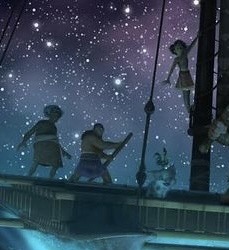
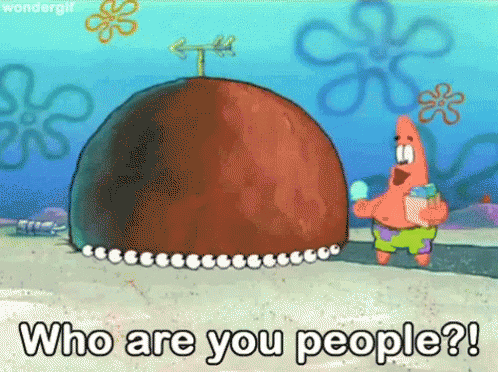
#kind of worried about how this is going to turn out because Disney’s in it’s flop era right now#disney#moana#disney moana#Moana 2#maui#pua#hei hei#te fiti
17 notes
·
View notes
Text
really hoping that the reason wish is so bad is bc all the writers and animators made it that way in retaliation
#wish 2023#disney#writer’s strike#disney wish#it’s awful#flop era#disney movies#grand overlord walt disney#walt disney’s head is being cryogenically preserved#house of mouse#animation#disney 100
9 notes
·
View notes
Text
disney stop capitulating to nostalgia and racists challenge (challenge failed immediately)
#this era of Disney is worse than their bronze dark and post-Renaissance eras combined#bc even tho each had problems and were finacial flops they still tried something new
4 notes
·
View notes
Photo


Mickey Vs Felix? The Original Sketch Was A In Studio Gag From The Walt Disney Animation Studios Made In The 1930s. I Thought It Was Silly So I Wanted To Redraw It.
#mickey mouse#mickey#felix the cat#felix#redraw#sketch#art#flop era post#walt disney animation studios
10 notes
·
View notes
Text
A Deep Dive Into Disney’s Most Underperforming Princess
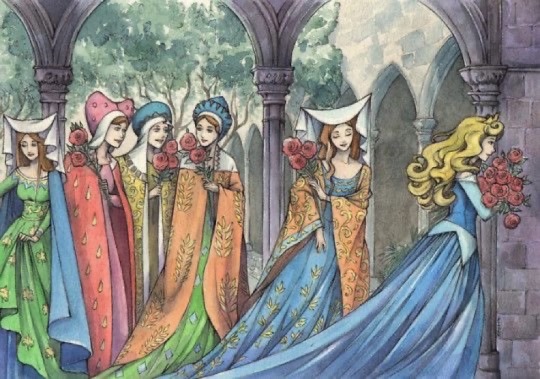
Princess Aurora can’t even be described as controversial. To most, she’s simply boring, too passive, and a continuation of the bland cycle of white princesses who wait around for magic or a prince to save them. Although no one hates her, they find her irritating at the worst, uninteresting at best. In the fifties, they must have thought the same thing. Sleeping Beauty was a commercial failure, and led to company wide annual loss. Sleeping Beauty had followed several other financial flops, such as Bambi and Alice in Wonderland, the latter costing Disney around half a million dollars. Due to her lack of popularity, Aurora may be one of the most neglected Princesses. Many cling to her out of nostalgia, or because she has a nice design, and they find it hard to defend their love for the movie. But the movie’s turbulent history and the amount of detail that went into Aurora herself is what really makes her so incredibly fascinating.
Starting with her design, Disney hired Marc Davis as the supervising animator for Aurora. He also animated Maleficent. The intention was for them to be realistic enough to be placed against the heavily detailed backgrounds of the movie. Davis had embraced this artistic direction, while many of the animators found it, and especially Aurora, laborious and tiring to work on. Both Maleficent and Aurora had to be refined and dynamic. Davis was Disney’s go-to animator for ‘pretty girls’, examples being Tinkerbell and Alice. His knowledge of anatomy and the human body brought both Aurora and Cinderella to life, two of Disney’s most visually iconic characters. Davis had also incorporated Art Nouveau and Art Deco into Aurora’s design, while the tapestry-like art style of the movie was chosen by Eyvind Earle, who was inspired by pre-Renaissance European art. The score and songs were based on Tchaikovsky’s ballet.
Aurora alone required more effort and attention to detail than any princess before her. It took Walt Disney and his team three years to choose a voice actress. They nearly scrapped the project until they discovered Mary Costa, but Disney himself avoided interacting with her in person early on in the project, fearing that she’d influence his vision of the movie.
Aurora was loosely based on her voice actress. Her appearance and her habits (such as gesturing when speaking and singing) were both incorporated into Aurora’s animation. She was also drawn to resemble both her live action model, the same one as Cinderella’s, Helene Stanley, and actress Audrey Hepburn. Davis took inspiration from Audrey Hepburn’s slender physique and elegant demeanour.
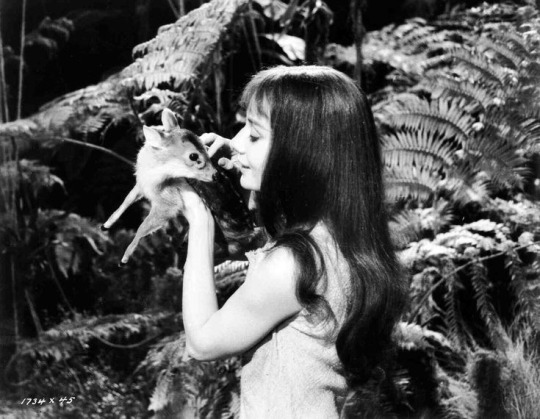
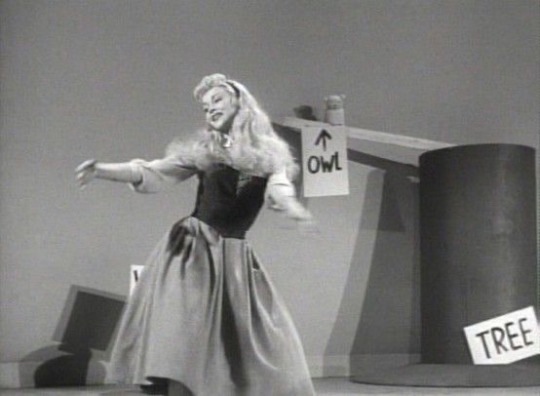
In the book Multiculturalism and the Mouse: Race and Sex in Disney Entertainment, author Douglas Brode referred to Aurora as “a model of modern (50’s) female glamour” and compared her to Brigitte Bardot. He also compared her gown to the work of Christian Dior.

As a character, she was described by Nerve as being “the apex of women who made no choices for themselves.” Aurora is a member of the “Golden Era” of Disney heroines, the original Princess trifecta. Her dreams are the same as those before her. But it’s possible that Aurora’s dreams of true love derived from the need for companionship outside of her three fairy godmothers.
On their website, Disney describes her as, “graceful and kind. She knows that a wonderful future awaits, if you just have the courage to dream it. Aurora enjoys using her imagination and sharing stories with her forest friends. She is also loyal in her relationships -- to her animal friends, her fairies, and her kingdom. Aurora believes in a wish and remains hopeful that she will find the adventure she is looking for.”
Walt Disney himself described Aurora as being “a very layered character/different. She’s calm, yet playful. She has a sense of humour, and she has an imagination.” We can not argue that she was considered layered through the lens of the fifties, because many critics disliked all three of the original princesses for their passive personality, or lack thereof. But from the perspective of the team working on the show, they saw much more to her.
This was the film that Walt Disney worked his hardest on, it took ten years to complete. It was also the very last Princess film he was involved in. Her ‘layers’ were very much intentional. Disney tried to do the same thing with Cinderella.
With Cinderella, they attempted to make her less passive than Snow White, and they showed this through her rebelling against her abusive stepfamily. Maurice Rapf said, "My thinking was you can't have somebody who comes in and changes everything for you. It can't be delivered for you on a platter. You've got to earn it. So in my version, the Fairy Godmother said, 'It's okay till midnight but from then on it's up to you.' I made her earn it, and what she had to do to achieve it was to rebel against her stepmother and stepsisters, to stop being a slave in her own home. So I had a scene where they're ordering her around and she throws the stuff back at them. She revolts, so they lock her up in the attic. I don't think anyone took (my idea) very seriously."
The toned down version of Cinderella, although rebellious in her own way, is still toned down. That part of her character was written out. In comparison to what she would have been, she is passive. Aurora and Cinderella are both less passive than their predecessors, but passive nonetheless. All three of them are the staple damsels in distress.
However, Mary Costa described Aurora as “very strong”, citing her urge to defy her guardians as a display of independence and an example of her strength. Aurora was raised by three women, and had never met a man in her life. Costa believed that because of this, she was ‘innately romantic’ as opposed to lonely or depressed with her sheltered life. To quote, “there was a certain part of her that maybe she didn’t realise, that was just so romantic and maybe expecting something that–she didn’t even know what.”
She believed that her being raised by three older women rather than her parents made her “a little bit older, and yet, she…had this young, outreaching spirit.” Author Douglas Brode points out that the fairies’ independent raising of Aurora mirrors “precisely that sort of women’s commune numerous feminists experimented with throughout the seventies.” Aurora living in an isolated, female-only space, with female authority, is reminiscent of the bold and liberating radical feminist movement. In her own way, as a peasant, she was independent. And that independence and autonomy was taken from her upon discovering that she was royalty and betrothed to a prince. She was leaving her home and the presumed man of her dreams behind, and not of her own free will.
Aurora had enjoyed her simple life, it had fulfilled her, even if she desired more. She had dreams of finding romantic love, which she talks about in the movie’s song ‘I Wonder’. Additionally, her close relationship with animals demonstrates her loving and kind personality. She has a whimsical imagination, and it’s scenes like the ones from Disney’s Enchanted Tales series and ‘Once Upon a Dream’, that would support Costa’s claim of her being a romantic. Where she’s changing in and out of pretty gowns with a magical wand, and giggling to herself. Or dancing happily with the forest animals, thinking about her imaginary prince. In ‘Keys to the Kingdom’, she proudly sings about wishing to make decisions with her heart.
Her independence is demonstrated on multiple occasions in Disney’s discontinued Enchanted Tales: Follow Your Dreams. Aurora graciously accepts responsibility of her kingdom while both her and Philip’s parents travel away for a business trip. All on her own, she is determined to get all of her Princess duties finished on time, the hard way. She refuses to take the easy way out, time and time again, even when she doubts herself. She works harder than even her father, who would take the easy way out by signing royal documents without reading them. Even when Meriwether gives her a magic wand to help her out, she reads and fills out every royal form diligently, and helps out all of her subjects. She manages to complete her tasks on time and throw a banquet for her family and Philip by the time they return. The lesson here is to ‘stick to it’ and to ‘persevere’. But her insistence on doing everything on her own is shown once again in A Kingdom of Kindness, where she must plan a surprise party for Philip. The three fairies attempt to help her, but she continues to tell them that she wants to do it on her own. This series was cancelled, and it is difficult to find any clips of it online. But this short-series gives us some insight into Aurora’s character.
She is assumed to be the protagonist by most, but many consider the three fairies to be the protagonists. They help move the story along, they protect Aurora, and they have distinct, in-your-face personalities. Many consider Aurora authentic, or the title character, but whether she is the protagonist or not has never been agreed upon. Her lack of role in the story has been criticized by many. But some take it as an allegory for the lack of control
The most lengthy debate surrounding Aurora has to do with how feminist her character is. She may have been an improvement from the previous princesses, but she is not regarded as a particularly feminist character.
The three original princesses, all being pale-skinned European princesses with a naive and endlessly forgiving (an unrealistic standard), sends a message to their viewers that this is what princesses should look like, how they should behave. All three classic princesses are deeply intertwined with Disney’s long history of racism and bigotry. In an attempt to amend this, Disney has released back to back live action remakes of their movies, all receiving mixed reviews. Maleficent was Sleeping Beauty’s remake, focused on a maternal relationship between Maleficent and Aurora. Many people interpreted the scene where Maleficent’s wings get cut off in her sleep as sexual assault. This inclusion made many survivors of sexual assault feel represented by the character.
From my perspective, the original Sleeping Beauty is technically a movie centred around women. A teenage girl lives with her three surrogate mothers, who end up saving her in the end from the female antagonist. Although Prince Philip’s role in the story is still a large part of what moves the plot along. It is Philip who is captured, as Maleficent knew that he would go looking for her. He courted Aurora, defeated Maleficent with the help of the three fairies, and kissed the princess awake. But he still doesn’t get as large of a role, or nearly as much screen time, as the three fairies.
In short, both the movie and the princess fascinate me. And although there is depth if you squint, a character does not need to be fleshed out to be lovable, or at least endearing. Aurora is my favourite Disney Princess, and I find the history behind her and the film to be more interesting than what meets the eye.
#disney#princess aurora#my girl!!!#sleeping beauty#show white#classic princesses#cinderella#walt disney#analysis#disney analysis#essay#feminism#mina loves disney
249 notes
·
View notes
Text
pop music club ♪
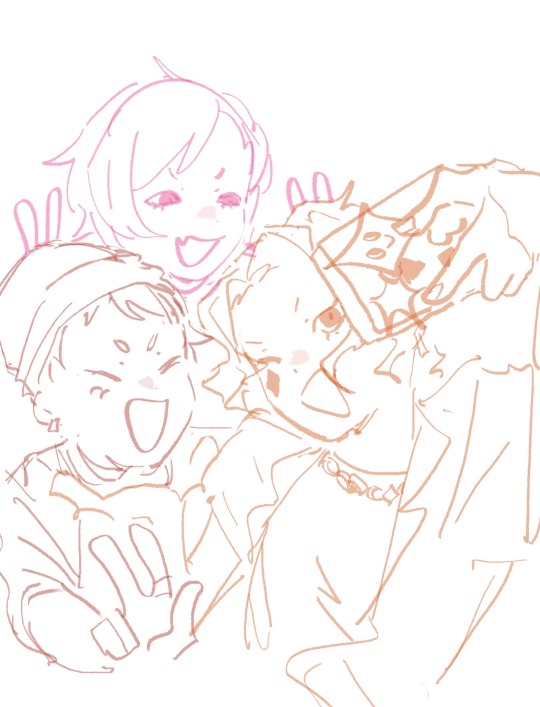
#pop club my beloved#what do u get when u mash a rich kid a social media luvr and a father into a group#absolute chaos#love them dearly!!!!#twisted wonderland#twst#kalim al asim#disney twisted wonderland#twst kalim#disney twst#lilia vanrouge#cater diamond#twst pop music club#twst lilia#twst cater#already in my flop era so im js doodlin LOL#wishing there were more events with the clubs in general#sob
366 notes
·
View notes
Text
Okay the thing about Mulan having next to no merch is like. This is not a real world problem that matters BUT I love to have strong opinions about things that don't matter. And
A. Half the time she's not even in the LINE UPS. like straight up I've seen stuff with like twelve goddamn princesses on them and Mulan is not on there. And they're not like the 3d newest princesses it's from across the eras.
B. I get it why some princesses get a shit ton of merch. Some are just wildly popular (Rapunzel, Ariel, I think Tiana), some are recent so they're getting promoted to hell and back (Like obvs Moana 2 just came out, of course they're ramping up Moana merch, that's completely fair). But like. Not to sound like a hater. But is Aurora like. That big? IS FUCKING. NOT A PRICNESS BUT STITCH. THAT FUCKING BIG???
C. Mulan made $304 million on a $90 million budget. It was the 7th highest grossing film of 1998. This movie wasn't like. A flop.
D. If you want Ping merch specifically, or even Mulan in her blue dress where she SAVES ALL OF CHINA, go fuck yourself apparently
E. Shan Yu is never in the Disney villains line ups and you know what? That's fair. I would also not put the racist caricature villain in my merch. At least not without like. A HEAVY redesign. Lol.
#mulan 1998 posting#plus side: when you do have mulan merch people think youre cool#like ive has people ask where i got it bc theyre so pumped#one guy was like 'where did you get your purse! my wife LOVES mulan!!'
74 notes
·
View notes
Text
The Batman Returns backlash gets at one element of 90s-era parental backlash: there was the Satanic Panic, and the Parents Music Resource Center's fretting over lyrics, and the groups that sought "hidden messages" in Disney movies, but a lot of media panics then were really about thematic elements. Debating if a movie was appropriate for kids not in terms of content but in terms of tone. Kids of the era fondly remember the darker content in kid's media, but their parents were less fond of it and the perceived threat to Childhood Innocence it represented. Basically everything had this "it says PG, but is it really not too intense for kids?" question attached to it. Reminds me of when I looked up what backlash there was to Hunchback of Notre Dame at the time, and it was mainly about it being Too Dark and not its content
Besides Batman Returns, widespread concern that the movie was Too Dark was responsible for Babe: Pig in the City flopping so hard the director didn't get to make another live action movie until Mad Max: Fury Road
68 notes
·
View notes